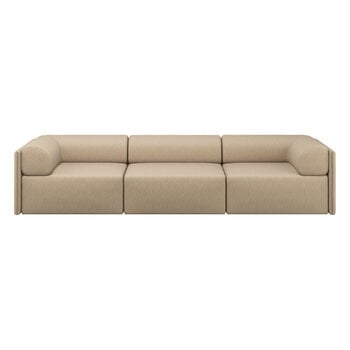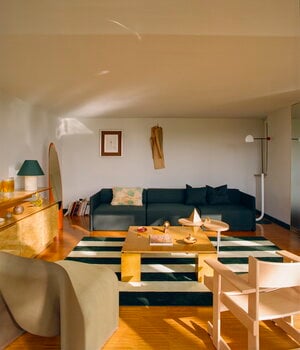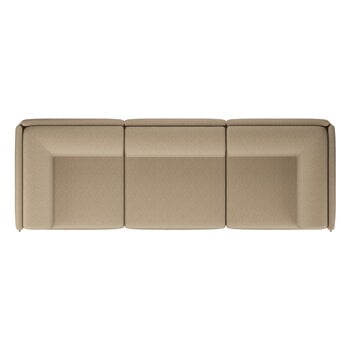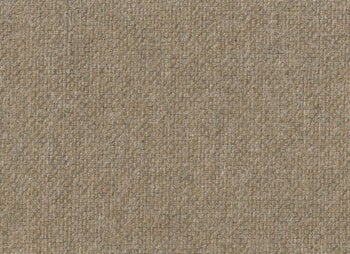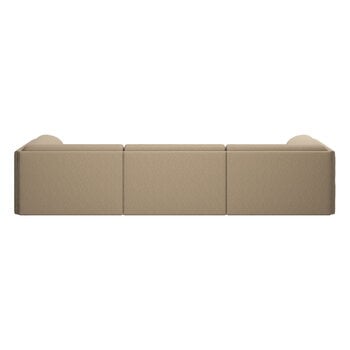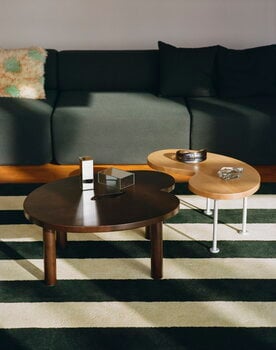Hem's Palo Block sofa builds on the modular design language of the popular Palo series. Created with the needs of public spaces in mind, this three-seater modular sofa is upholstered in durable wool fabric and it mirrors the familiar shapes of the Palo collection with a slightly more angular touch. Standing on low metal legs, the Palo Block sofa offers a peaceful, cosy retreat for offices and other public areas, while also serving beautifully as a living room sofa at home.
The Palo collection is modular, so you can customise the sofa to your liking by adding or changing its parts. The sofa is extremely easy to assemble – this also makes modifying it simple and hassle-free. For example, when moving to a bigger apartment or office space, you can add modules to make the sofa larger. The Palo collection includes sofas designed to suit both private and public spaces.

